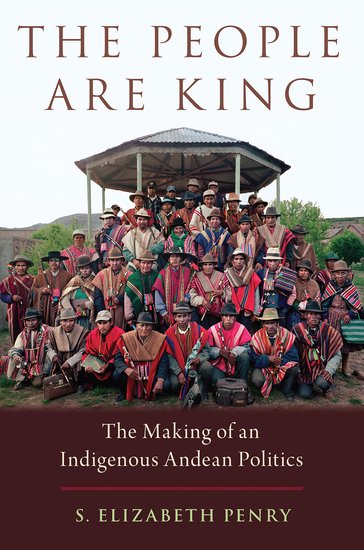The People Are King
The Making of an Indigenous Andean Politics
- ISBN: 9780195161618
- Editorial: Oxford University Press
- Fecha de la edición: 2020
- Lugar de la edición: New York. Estados Unidos de Norteamérica
- Encuadernación: Rústica
- Medidas: 24 cm
- Nº Pág.: 312
- Idiomas: Inglés

In the sixteenth century, in what is now modern-day Peru and Bolivia, Andean communities were forcibly removed from their traditional villages by Spanish colonizers and resettled in planned, self-governed towns modeled after those in Spain. But rather than merely conforming to Spanish cultural and political norms, indigenous Andeans adopted and gradually refashioned the religious practices dedicated to Christian saints and political institutions imposed on them, laying claim to their own rights and the sovereignty of the collective. The People Are King shows how common Andean people produced a new kind of civil society over three centuries of colonialism, merging their traditional understanding of collective life with the Spanish notion of the común to demand participatory democracy. S. Elizabeth Penry explores how this hybrid concept of self-rule spurred the indigenous rebellions that erupted across Latin America in the eighteenth century, not only against Spanish rulers, but against native hereditary nobility, for acting against the will of the comuneros.
Through the letters and documents of the Andean people themselves, The People Are King gives voice to a vision of community-based democracy that played a central role in the Age of Atlantic Revolutions and continues to galvanize indigenous movements in Bolivia today.
Acknowledgments
A Note on Terminology
Introduction: The Genesis of an Andean Christianity and Politics
Part I Inca and Early Spanish Peru
Chapter 1 Incas and Asanaqi in Qullasuyu
Chapter 2 Spanish República and Inca Tyranny
Chapter 3 Resettlement: Spaniards Found New Towns for "Indians"
Part II The Andeanization of Spanish Institutions and Christianity
Chapter 4 Andeans Found Their Own Towns: The Andeanization of Reducción
Chapter 5 Cofradía and Cabildo in the Eighteenth Century: The Merger of Andean Religiosity and Town Leadership
Chapter 6 Rational Bourbons and Radical Comuneros: Civil Practices That Shape Towns
Part III The Revolutionary Común
Chapter 7 Comunero Politics and the King's Justice: The Común Takes Moral Action
Chapter 8 A Lettered Revolution: A Brotherhood of Communities
Conclusion The Rise of the Común and Its Legacy
Notes
Bibliography
Index






